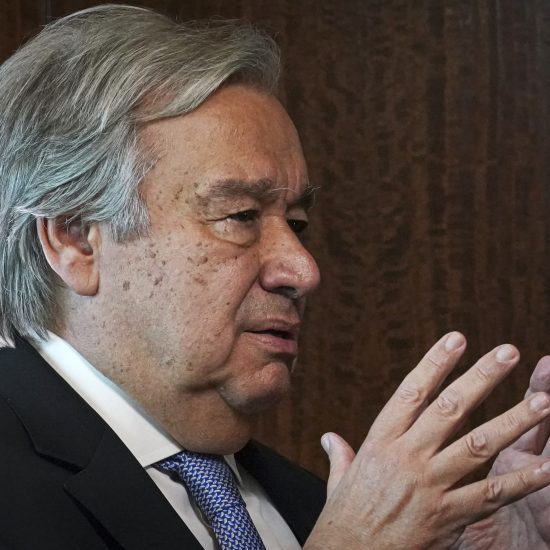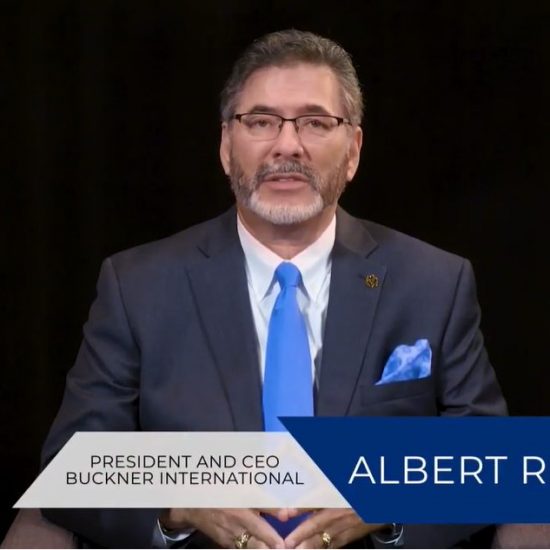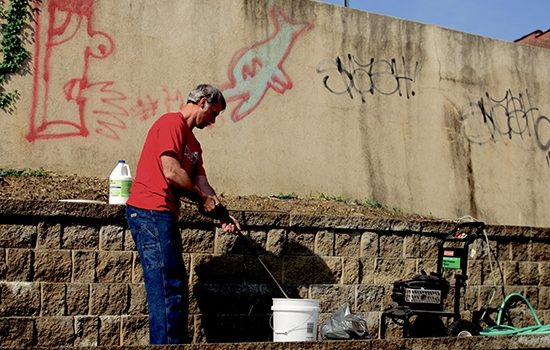DALLAS—Christ-centered agencies can serve as instruments of community transformation, but their effectiveness depends on collaboration, the president of Buckner International told a national conference focused on world hunger.
“Honestly, our greatest challenges are not the needs we face. Our greatest challenge will be our ability to work together, to collaborate, to create alliances and synergistic relationships to deliver solutions to those who hunger and thirst,” Albert Reyes said.
Reyes addressed a conference at Dallas Baptist University called “An Evangelical Advocacy Response to Global Childhood Hunger.” Sponsors included Bread for the World, the National Association of Evangelicals, Micah Challenge and the Texas Baptist Christian Life Commission.
Christian global missions agencies tend to develop expertise in one area, but they often fail to work cooperatively with other entities, Reyes noted. And as a result, lack of collaboration may result in a truncated view of the gospel.
“For far too long, we have diced and sliced the core message of redemption as an expression of the way we think of ministry. Our categories and compartmentalization have resulted in neatly organized silos of specialization, so that cooperation and collaboration for the work of redemption as a kingdom reality—on earth as it is in heaven—are, at best, minimal and marginal,” he said.
“You are either an evangelistic ministry or a social ministry or a missions ministry or a justice ministry but certainly not focused on all of them—or even a combination of them. In many circles, we have split the mission of Jesus and the gospel itself into ministry that is recognizable in part but not as a whole.”
Reyes pointed to three practical zones of ministry outlined by Thom Wolf, president and professor of global studies at University Institute in New Delhi, India—weeds, deeds and seeds.
“When we pull weeds of patterns of injustice, we are involved in bringing hope to people. When we do good deeds, we demonstrate the love of God to those we serve. And when we plant seeds, we are involved in laying the groundwork for faith to emerge,” he explained.
“Working in the weeds zone requires courage. Working in the deeds zone requires compassion. And working in the seeds zone requires conviction. So, as people of compassion, courage and conviction, we see the whole and are responsible for the whole syllabus of life, even though we primarily work in one zone or the other.”
Buckner International, for example, focuses primarily on the deeds zone, he explained. But the agency collaborates with organizations such as International Justice Ministry in the weeds zone and with churches in the seeds zone, he added.
When confronted with the reality of global hunger that results in the deaths of 26,000 children in the world every day, Christians do not have the option of doing nothing, Reyes insisted.
Giving to reputable relief organizations and going to participate in hands-on ministry to alleviate immediate needs offer better alternative responses, but they still are incomplete, he asserted.
As a more holistic approach, Reyes offered the example of community transformation centers, such as the ones Buckner has established in Honduras, Guatemala and at strategic locations in Texas.
These centers work with families in communities to assess and identify needs, systematically fill gaps in the delivery of social services and enlist partners to provide an array of resources.
“Our goal is to provide a comprehensive solution to the community’s needs, so that within three years, there is a noticeable transformation in the community, and families are better and stronger,” he said.
Turning from the larger issue of childhood hunger around the world to the more specific but related issue of orphaned children, Reyes acknowledged experts differ widely in their estimates—anywhere from 143 million orphans to 16 million.
“Either way, the task to get to the least of these as quickly as possible is daunting and challenging. No single church, organization or NGO will be able to get the job done,” he said.
Together, Christians can make a difference, but they must move beyond self-imposed boundaries and think creatively about how to work together, he insisted.
“We are finding that donors and foundations expect collaboration and look upon duplication of services as poor stewardship,” Reyes said. “To fail to collaborate seems archaic and has become a death knell for organizations that insist on doing things on their own. These organizations will meet their own fate in the land of irrelevance as they travel back to the era of the Lone Ranger.”
Reyes called Christians to “kingdom collaboration”—working together to advance the kingdom of God rather than individual agendas.
“The mission of the kingdom is greater than the purpose of our own organization. The mission of Jesus was to bring good news to the poor. I think that would mean they don’t have to be poor anymore,” he said.
“Kingdom collaboration means that those of us that specialize in the deeds zone or the weeds zone or the seeds zone realize that we need each other, because we are responsible for the whole syllabus, not just the kingdom assignments we prefer. When kingdom collaboration happens, lots of people get blessed, because the kingdom comes near.”




